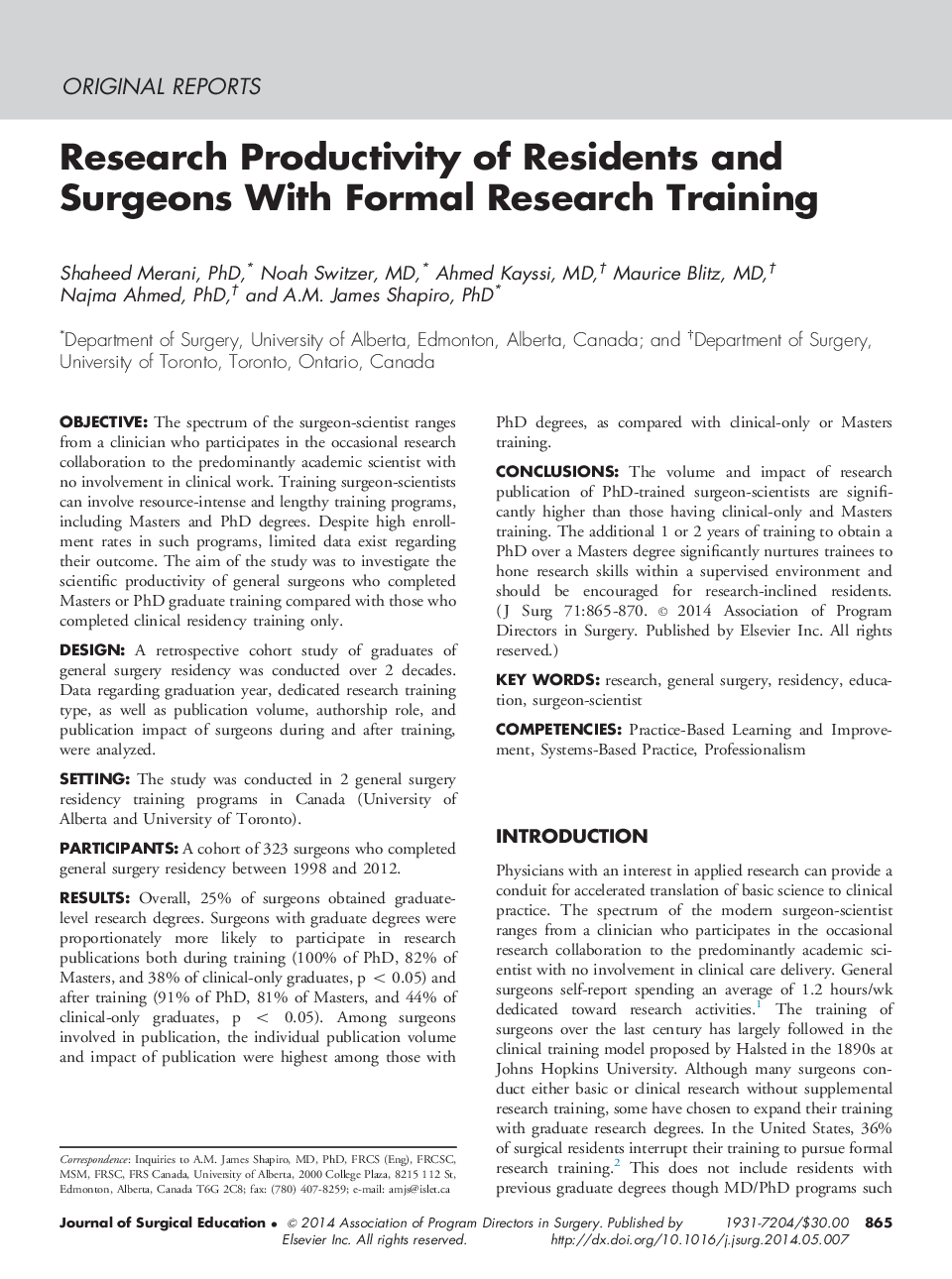| Article ID | Journal | Published Year | Pages | File Type |
|---|---|---|---|---|
| 4297929 | Journal of Surgical Education | 2014 | 6 Pages |
ObjectiveThe spectrum of the surgeon-scientist ranges from a clinician who participates in the occasional research collaboration to the predominantly academic scientist with no involvement in clinical work. Training surgeon-scientists can involve resource-intense and lengthy training programs, including Masters and PhD degrees. Despite high enrollment rates in such programs, limited data exist regarding their outcome. The aim of the study was to investigate the scientific productivity of general surgeons who completed Masters or PhD graduate training compared with those who completed clinical residency training only.DesignA retrospective cohort study of graduates of general surgery residency was conducted over 2 decades. Data regarding graduation year, dedicated research training type, as well as publication volume, authorship role, and publication impact of surgeons during and after training, were analyzed.SettingThe study was conducted in 2 general surgery residency training programs in Canada (University of Alberta and University of Toronto).ParticipantsA cohort of 323 surgeons who completed general surgery residency between 1998 and 2012.ResultsOverall, 25% of surgeons obtained graduate-level research degrees. Surgeons with graduate degrees were proportionately more likely to participate in research publications both during training (100% of PhD, 82% of Masters, and 38% of clinical-only graduates, p < 0.05) and after training (91% of PhD, 81% of Masters, and 44% of clinical-only graduates, p < 0.05). Among surgeons involved in publication, the individual publication volume and impact of publication were highest among those with PhD degrees, as compared with clinical-only or Masters training.ConclusionsThe volume and impact of research publication of PhD-trained surgeon-scientists are significantly higher than those having clinical-only and Masters training. The additional 1 or 2 years of training to obtain a PhD over a Masters degree significantly nurtures trainees to hone research skills within a supervised environment and should be encouraged for research-inclined residents.
